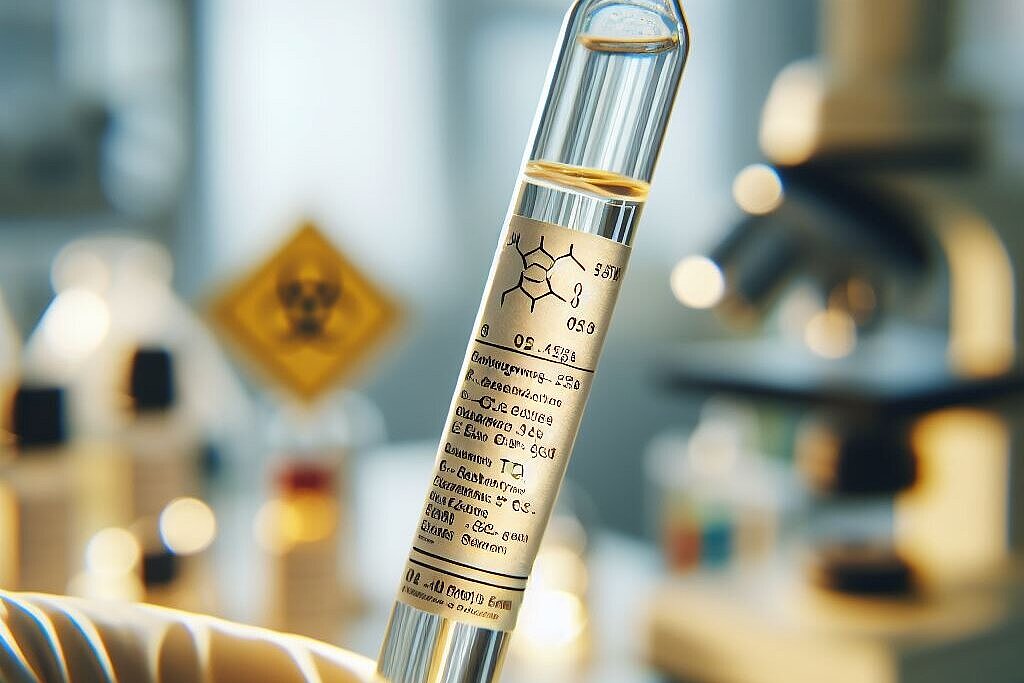Eugenol

Eugenol is a natural fragrance that is mainly found in cloves. It has a spicy smell and is used in cosmetics, dentistry and aromatherapy. But how does eugenol affect dogs and is it safe or dangerous for them? In this article, you'll find out more about the properties, pros and cons of eugenol for dogs.
What is eugenol?
Eugenol is a secondary plant substance from the phenylpropanoids group. It is the main component of clove essential oil, which can contain up to 95 percent eugenol. However, eugenol is also found in other spices such as cinnamon, allspice, nutmeg and bay leaf. It is also found in small quantities in some fruits such as bananas and cherries.
Eugenol has various effects on the human body. For example, it has the following effects
- Bactericidal and fungicidal: Eugenol can inhibit or kill the growth of various microorganisms. This makes it a natural antiseptic and preservative.
- Anesthetic: Eugenol has an analgesic effect by blocking the nerve endings. This is why it is often used in dentistry, for example for toothache or root canal treatment.
- Antioxidant: Eugenol can neutralize free radicals and thus protect cells from oxidative stress. This can strengthen the immune system and slow down the ageing process.
However, eugenol also has disadvantages and risks. For example, it can
- trigger allergies: Eugenol is a known contact allergen for humans. This means that it can trigger a hypersensitivity reaction of the skin or mucous membranes in some people. Symptoms can include itching, redness, swelling or blistering.
- Damage cells: Eugenol not only has antioxidant but also pro-oxidant properties. This means that under certain conditions it can attack and destroy cells. This can lead to inflammation or tissue damage.
- Liver stress: Eugenol is broken down and excreted in the liver. However, this can produce toxic intermediate products that can impair liver function. A high dose or long-term use of eugenol can therefore damage the liver.
How does eugenol affect dogs?
The effect of eugenol on dogs is not as well researched as its effect on humans. However, there is some evidence that eugenol is not harmless to dogs.
Firstly, dogs can also have an allergic reaction to eugenol. The symptoms are similar to those of humans: Skin irritation, itching, redness or swelling. The ears, nose and mouth are particularly sensitive.
Dogs can also be poisoned by eugenol. The toxic dose for cats and dogs is around 1 mg of estrogen per kilogram of body weight. This corresponds to about 0.1 ml of clove oil per kilogram of body weight. Poisoning can cause the following symptoms
- vomiting
- diarrhea
- shortness of breath
- cramps
- Unconsciousness
- Liver failure
- death
- Eugenol is a phytochemical mainly found in clove oil and other spices such as cinnamon, allspice and bay leaf.
- Eugenol has various positive effects on humans, including antibacterial, anesthetic and antioxidant properties.
- However, eugenol can also trigger allergies, damage cells and stress the liver.
- The effect of eugenol on dogs has not been fully researched, but there is evidence that it can be dangerous for dogs as it can cause allergic reactions, poisoning and serious symptoms such as vomiting, respiratory distress, convulsions and liver failure.
If you notice any signs of hypersensitivity or poisoning in your dog, you should see your vet immediately. We are not a substitute for a vet, but we try to be as accurate as possible. Every dog reacts differently and we recommend you get a second opinion or consult your vet if in doubt.
Stay healthy and take good care of your four-legged friend!😊
Similar to Eugenol
Thymol is a natural organic compound found mainly in the essential oils of thyme (Thymus vulgaris) and some other plants. It is known for its strong, spicy scent and its antimicrobial, antifungal...
Carvacrol is a chemical compound known for its spicy smell and taste. It is valued for its antimicrobial, anti-inflammatory and antioxidant properties in human medicine and food preservation. But...
Anethole is used as a flavoring agent in perfumery and liqueur production. It also has a number of medicinal properties: it has an expectorant, antispasmodic and antibacterial effect. It can also...
Cinnamaldehyde, the main component of cinnamon oil, is responsible for the characteristic aroma and flavor of cinnamon. It is an organic compound that is valued in the kitchen for its aromatic...


